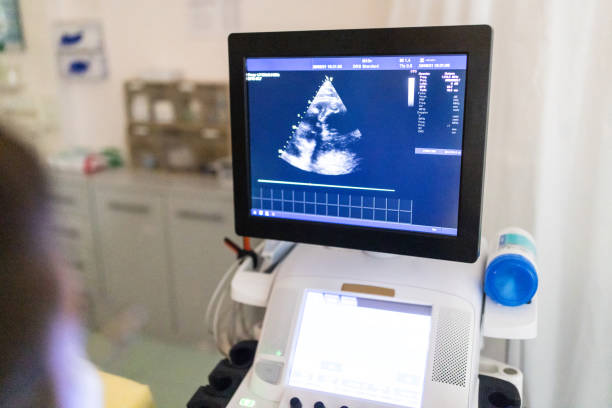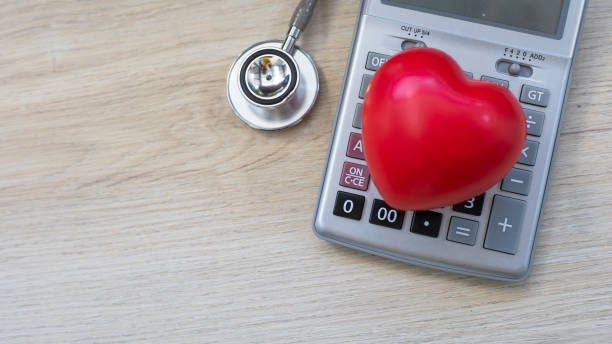
The Role of Echocardiogram in Detecting Heart Problems in Melbourne
Heart problems are a common concern among people worldwide. According to the World Health Organization (WHO), heart diseases are the leading cause of death worldwide. The good news is that many heart problems can be prevented or treated if they are detected early. One way to detect heart problems is through an echocardiogram. In this article, we will explore the Melbourne cardiology advancements and echocardiogram’s role in detecting heart problems.
What is an Echocardiogram?
An echocardiogram, or “echo,” uses sound waves to create images of the heart. This test can show the heart’s size, shape, movement, and blood flow, and is used to diagnose and monitor heart problems. Early detection is important for effective treatment, as delayed detection can lead to serious complications, including heart attacks, heart failure, and death. Regular check-ups and diagnostic tests, such as echocardiograms, are crucial for maintaining heart health and preventing problems.
How Echocardiogram Works
During an echocardiogram, a technician will apply gel to your chest and then place a wand-like device called a transducer on your chest. The transducer sends high-frequency sound waves through your chest to your heart. The sound waves bounce off your heart and create images of your heart’s structures, which are displayed on a monitor.
When is an Echocardiogram Needed?
An echocardiogram may be recommended if you are experiencing symptoms of heart problems, such as chest pain, shortness of breath, dizziness, or fatigue. Echocardiograms may also be performed as part of routine heart check-ups or if you have a family history of heart problems.

Symptoms that Require Echocardiogram
Symptoms that may require an echocardiogram include:
- Chest pain
- Shortness of breath
- Fatigue
- Dizziness or lightheadedness
- Rapid or irregular heartbeat
- Swelling in the legs or abdomen
Risk Factors for Heart Problems
Several factors can increase your risk of heart problems, including:
- High blood pressure
- High cholesterol
- Diabetes
- Smoking
- Obesity
- Family history of heart disease
Medical Conditions that Require Echocardiogram
Echocardiograms may be recommended if you have certain medical conditions, such as:
- Heart murmur
- Aortic aneurysm
- Aortic dissection
- Mitral valve prolapse
- Pulmonary hypertension
- Cardiac tumors
Types of Echocardiogram
There are several types of echocardiograms available depending on the patient’s needs, including:
- Transthoracic Echocardiogram (TTE): a probe on the chest is used to obtain heart images
- Transesophageal Echocardiogram (TEE): a probe passed through the mouth and into the esophagus for clearer images
- Stress Echocardiogram: patient exercises while heart activity is monitored
- 3D Echocardiogram: three-dimensional imaging for detailed heart structures
- Fetal Echocardiogram: evaluates the developing fetus’ heart during pregnancy.
How does Echocardiogram Detects Heart Problems?
Echocardiograms can detect a wide range of heart problems, including:
- Structural abnormalities include defects in the heart valves, chambers, or walls.
- Cardiomyopathy: This refers to heart muscle diseases that affect its ability to pump blood effectively.
- Heart attack: Echocardiograms can detect damage to the heart muscle caused by a heart attack.
- Pericardial disease refers to inflammation or other problems with the sac surrounding the heart.
- Congenital heart disease: This is a type of heart defect that is present at birth.
In an echocardiogram, sound waves bounce off the heart’s structures and are converted into images on a screen, allowing doctors to assess heart function and detect any issues.
Procedure of Echocardiogram
Before the procedure, patients will be asked to change into a hospital gown and remove any jewelry or metal objects. A technician will place small electrodes on the patient’s chest to monitor the heart’s electrical activity.
During the test, the patient will lie on a table while a technician moves a probe over the chest. The procedure usually takes around 30 minutes and is painless.
Accuracy of Echocardiogram
Echocardiograms are highly accurate in detecting heart problems, with a reported accuracy rate of over 90%. In addition, echocardiograms are non-invasive and do not expose patients to radiation, making them a safe and effective diagnostic tool.
Benefits of Echocardiogram
There are several benefits to having an echocardiogram, including the following:
Early detection of heart problems
Echocardiograms can detect heart problems at an early stage before symptoms develop. This allows healthcare providers to treat the problem before it becomes more serious.
Non-invasive procedure
Echocardiograms are non-invasive, meaning they do not require incisions or needles. This makes them a safer and less painful alternative to other diagnostic tests, such as cardiac catheterization.
No radiation exposure
Unlike other diagnostic tests, such as X-rays or CT scans, echocardiograms do not expose patients to ionizing radiation. This makes them a safer alternative for patients sensitive to radiation.
Quick results
Echocardiograms provide quick results, which allows healthcare providers to diagnose and treat heart problems more quickly.

Cost of Echocardiogram
The cost of an echocardiogram can vary depending on the healthcare provider and location. Echocardiogram costs in Melbourne can range from $200 to $500.
Final Thoughts
Echocardiograms are a safe, non-invasive, and effective diagnostic tool for detecting heart problems. The accuracy rate of over 90% and the ability to detect heart problems before symptoms develop makes echocardiograms crucial for maintaining good heart health.
Regular heart check-ups and echocardiograms are especially important for individuals with risk factors for heart problems or symptoms of heart disease. In Melbourne, the advancements in cardiology have made echocardiograms more accessible and affordable.
Echocardiograms are significant in detecting and preventing heart problems, allowing healthcare providers to diagnose and treat heart conditions more effectively.


